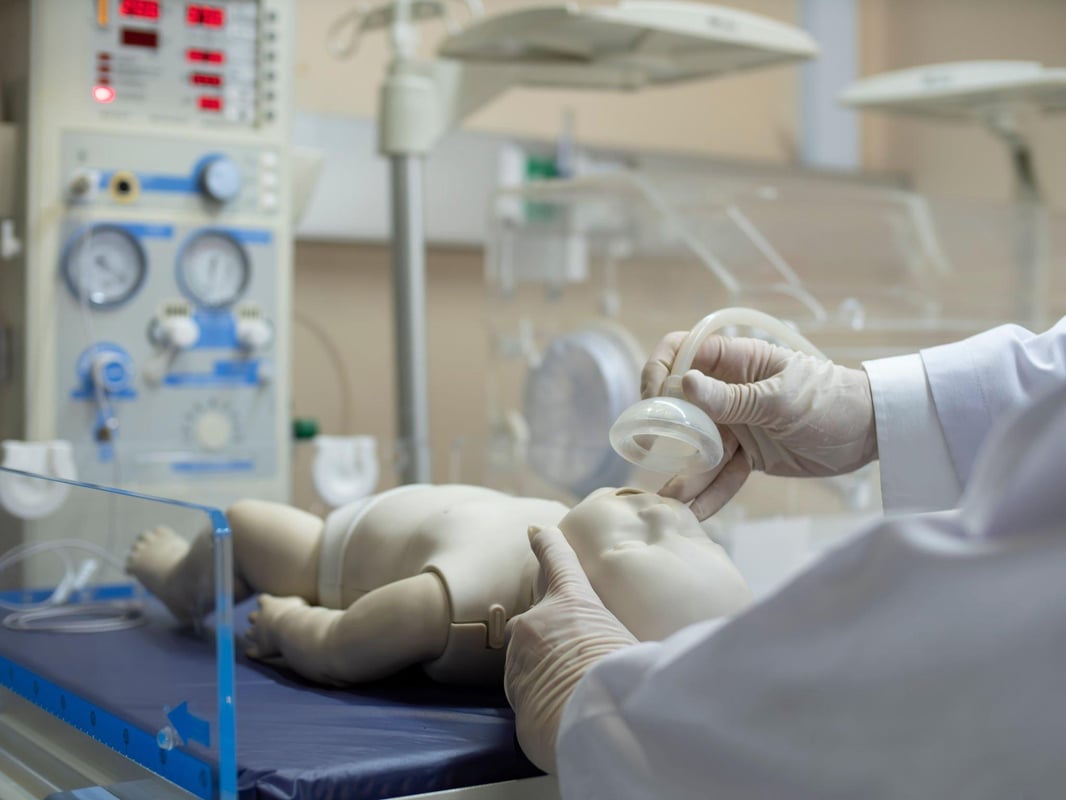$276 total
$2,075 total
$270 total
$410 total
$365 total
$150 total
No cost info
$285 total
$150 total
No cost info
Finding the right Pediatric Advanced Life Support (PALS) class in Allentown can seem like a daunting task, especially if you're not sure where to start. However, this blog post aims to provide comprehensive guidance to help you navigate this process more efficiently. From understanding what PALS is to learning how to search for the best class, this guide will help you find the right path to your career goals.

Pediatric Advanced Life Support (PALS) is a clinical algorithm developed by the American Heart Association (AHA) for the urgent treatment of children experiencing life-threatening illnesses or injuries, particularly problems related to the cardiovascular system. As a PALS provider, you will be equipped with the knowledge and skills necessary to identify and manage these emergencies, improving patient outcomes.
PALS training typically requires a healthcare background as it builds on knowledge and skills learned in Basic Life Support (BLS) and Advanced Cardiovascular Life Support (ACLS) courses. Here are some of the prerequisites generally needed:
Current BLS certification
Basic knowledge on reading EKG rhythms
Understanding of basic drug pharmacology
Familiarity with managing airways
When searching for a PALS class, keep in mind the following factors:
Accreditation: Ensure the course is AHA-approved.
Course Format: Check if the course format suits your needs. Some classes offer online theory with in-person skills assessments, while others are entirely classroom-based.
Instructor Experience: Experienced instructors can provide meaningful context and real-world examples, enhancing your learning.
Daily PALS classes will be a mix of theoretical knowledge and practical skills. You can expect:
Lectures: Covering pediatric assessment, basic life support, PALS treatment algorithms, and effective resuscitation.
Skill Stations: Hands-on activities for practicing PALS techniques in a controlled environment.
Simulations: Real-world scenarios to test your knowledge and skills.
Once you complete the PALS course, you'll need to pass a written exam and a skills evaluation to receive your certification. The certification is valid for two years, after which you'll need to take a recertification course to maintain your PALS provider status.
PALS certification can open doors to several healthcare roles, such as pediatric nurses, paramedics, and respiratory therapists. To find related jobs, you can use online platforms like Dreambound, which offers resources on various healthcare careers, including how to become a respiratory therapist in Pennsylvania.
After becoming a PALS provider, you may consider other advanced training courses to broaden your skills, including:
Advanced Trauma Life Support (ATLS)
Neonatal Resuscitation Program (NRP)
Emergency Medical Technician (EMT) certification. You can find more about how to become an EMT in Pennsylvania from the Dreambound blog.
Before deciding, consider the pros and cons of each format. Online classes offer flexibility, while in-person classes provide hands-on experience and immediate feedback.
Regular recertification ensures you stay updated with the latest guidelines and protocols, maintaining your competency as a PALS provider.
While both PALS and ACLS focus on life-saving procedures, PALS is specific to the pediatric population, while ACLS covers adults.
PALS certification can enhance your healthcare career by expanding your skill set, improving your ability to handle emergencies, and making you more marketable to employers.
Becoming a PALS provider requires dedication and hard work, but the reward is a fulfilling career where you can make a significant difference in the lives of children experiencing medical emergencies. Remember to choose an accredited PALS class, keep up with recertification, and consider other advanced training courses to further enrich your healthcare career. You can explore more healthcare career paths like how to become a certified medication aide in Pennsylvania and many more on the Dreambound blog. Happy learning!
If you're considering pursuing this certification in a different location, we have other in-depth guides to help. Check out our guides for different cities below:
Pondering a shift in your career path or exploring different professional avenues? Dreambound has created detailed guides to support you in making informed decisions:
Dreambound's platform allows prospective students to find the right educational program for them through searching, filtering, and connecting with our extensive selection of career & technical education partners.
Dreambound has over 70 programs across healthcare, technology, business, and industrial trades. This includes programs such as Medical Billing, Cybersecurity, and welding.
Some of our schools offer financial aid for those who qualify. Many others offer payment plans, where you can pay the cost of class over time.
Yes, Dreambound offers many online programs. On Dreambound's search, you can filter by online, in-person, and hybrid (part online, part in-person).
Dreambound is completely free for you to use! We are supported by schools and organizations who pay to advertise on our website, so we can offer all of our career resources for free.